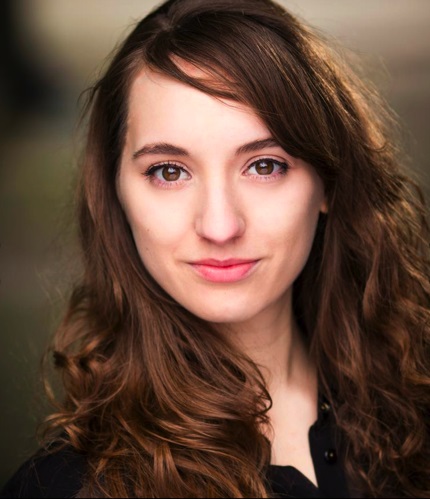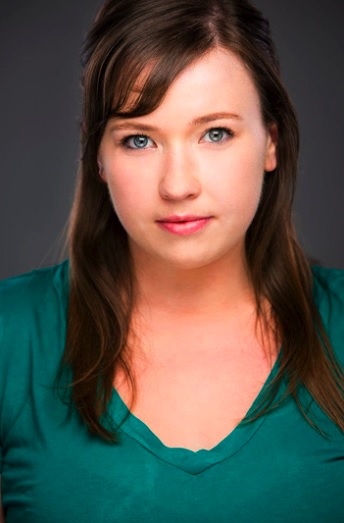

After reviewing 3 Crate’s intriguing adaptation of Henna Night, I was given the opportunity to interview the cast and director here’s how it went, with info on the characters, script, and general process of creating a unique experience for theatre goers.
1. Chapter arts centre overall is surprisingly sprawling, but its theatre can be best described as cosy; how do you feel playing in such an intimate theatre affected the performance?
Emma (who plays Ros): The theatre space at Chapter Arts Centre is lovely to perform on. It means that, as an actor, you can really feel the audience with you. We had previously done the piece in a much larger performance space with the audience further away, and I felt that for such a personal and naturalistic piece, this kind of setting is far better. The play is set in Judith’s ‘eggbox’ sized bed sit, so it was important for us to allow that claustrophobic feel come through. There really is no escape for Ros in such a small space, and it was lovely to have the theatre space add to that.
2. There aren’t that many female led projects in general, and nowhere near enough female friendships – do you feel this is something unique to Henna night, or since the late 90’s, when it came out and won awards, has it trickled into other plays?

Hannah (Judith): The biggest pull for me wanting to perform ‘Henna Night’ was the bold decision Amy Rosenthal took, in writing two strong, real modern woman and not caricatures – we’ve all been a Judith and/or Ros. I think since the 90’s and most definitely in more recent times, the whole debate about female characters, gender-casting , female driven plays has been growing and I certainly have found it affecting new writing, which as a female, I am really excited about. I do believe it has started in trickle in but not just into plays but other areas such as film and tv.
3. What were the challenges of the play’s direction – it’s a very natural and simplistically directed play; so what were the subtleties that you feel enhanced it?

Peter (director) : For me the character work was the key. We did extensive character work on Judith and Ros, so even though it was simplistic, both characters were interesting in themselves. My aim in the direction was to enable to actors to give pure, natural performances so the audience could relate to and empathise with them. We wanted the audience to go on an emotional journey in the piece, but we also wanted to remain true to the play, which is very simple and natural in form. In making the characters as natural as possible I aimed to counter some of the comedy moments, so that the audience could experience the depth of the characters and the performance wouldn’t become a farce.
I aimed to make the set communicate as much In the piece as the characters. We were inspired by Tracey Emin’s ‘My Bed’, as – like Emin – Judith has effectively remained on her futon bed for weeks as she wallows in the pain of Jack leaving. The litter scattering the floor added a tactile, unstable element that the actors had to navigate during the performance. There was a lot on the floor, and if the actors touched, knocked over or kicked any of it I had given the direction that they had to react and deal with it. In my work I use organic blocking, so I allow the movement of the actors onstage to be found in the moment or through improvisations in rehearsal. This, combined with the ever changing set, made for a performance that has changed every night.
4. If the story was, like it so easily could have been the boyfriend’s, with Ros and Judith’s growing understanding as just a subplot, how do you think the play would change?
Emma: The play would change dramatically! My fear is that, if Jack was introduced as the lead character, Ros and Judith would be reduced to character types rather than three dimensional characters. Unfortunately, it is very rare as an actress to be offered a character who is in the play in her own right and not just ‘the girl friend’, ‘the mother’, ‘the mistress’, etc. In ‘Henna Night’ we are able to see the characters as people in their own right. If Jack was introduced to the plot, I doubt we would’ve have been given the opportunity to see Ros’s manipulative side as well as her sensitive caring nature. In the play we get to see Ros triumphantly mocking Judith as well as her desperately trying to lighten the mood and make friends. There are very few plays in which as an actress in their 20s you get to do that. So thanks Amy Rosenthal for writing ‘Henna Night’!
5. The play starts off very dark, but slowly tails off the dark premise and into something very warm; do you think the tonal balance fit the characters, or did you think about putting nuggets of black comedy in the lighter parts, and vice versa?
Peter: I wanted to create a piece that fluctuated between darker and lighter moments. By remaining true to each moment, both the comedy moments and the darker points, the audience were able to experience the humour and invest in the darker moment.
Hannah: Amy’s (Rosenthal) script is fantastic and I do feel the tonal balance she created through the script does fit the characters. When I first read the script, the way in which Judith uses her nuggets of comedy and one-liners in both the darker parts and the lighter parts was really interesting and discovering ways to play the lines was a delight.
6.Finally, when the characters first walk on, they’re centrepieces of the comedy rather than completely likable – Ros seems a little superior, and Judith the easy to mock brash character – how conscious were you of turning their characters around, so the audience would sympathize with them more, in a subtle and organic way?
To be honest, the script did it for us. In rehearsal, Peter really encouraged us to trust the script and invest in each moment fully. Through all the extensive character work we had done in rehearsals we knew the character were multi-faceted people. I had found through the improvisations and visualisations that she could be kind and caring, but also manipulative and snide. She used humour to try to dissipate some of the tension and awkwardness of the situation, but also at times used it to mock and berate. Ros is paranoid that Jack will leave her for Judith, especially if she is pregnant with his child, but on the side she is truly trying to convince herself that she deserves happiness and that she, and not Judith, is the right woman for Jack. The play allowed the audience to see different sides of Ros throughout and, hopefully, to sympathise with, but also dislike her at different times. Many of us have been Ros at one time, and many have been Judith as well. Through the play we wanted to try to show both sides of the story. IT’s been great having audience members approach both myself and Hannah after the show and say ‘I hated you at first, but then I thought – that’s just how I felt when X left me’ or ‘I know exactly how Ros feels! I always wanted to say that to X’s ex-girlfriend’.
For more info on the company check out
3crate.wordpress.com

Get The Chance has a firm but friendly comments policy.
